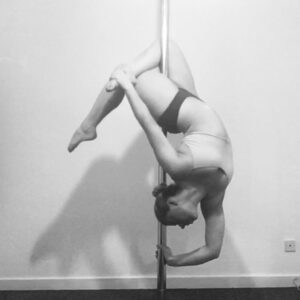2 Things Dancers Should Do in Everyday Life
 Lately, mostly due to dance projects I’ve been working on, I have become really interested in things dancers should do in everyday life. I really believe that the way dancers make decisions in everyday life will ultimately dictate the way they make decisions in the studio, either in practice or in improvisation sessions. Additionally and linked to decision making, there is a similarity in how dancers talk about themselves in everyday life and how they use their time in the studio. I’m not saying every dancer is the same, but I have witnessed these two things on many levels in and out of the studio. Read my thoughts below and look at how you make decisions and how you talk about yourself.
Lately, mostly due to dance projects I’ve been working on, I have become really interested in things dancers should do in everyday life. I really believe that the way dancers make decisions in everyday life will ultimately dictate the way they make decisions in the studio, either in practice or in improvisation sessions. Additionally and linked to decision making, there is a similarity in how dancers talk about themselves in everyday life and how they use their time in the studio. I’m not saying every dancer is the same, but I have witnessed these two things on many levels in and out of the studio. Read my thoughts below and look at how you make decisions and how you talk about yourself.
Look at How You Make Decisions
In everyday life, if you struggle with decision making you might say things like “it’s up to you” or “I’ll do whatever you want to do”. Does this sound like you? If so, does the same thing happen in class? Do you just work on what everyone else works on? Do you just do what everyone else wants to do in class?
I’ve witnessed this so much in improvisation and have spoken to a lot of dancers who feel that their ability to make decisions really hinders their spontaneity in movement; by the time they have finished their internal discussion about whether to do something or not, the opportunity has passed and the moment is gone. Similarly, in pole dance, one’s ability to make a decision may be hindered by thoughts of hesitation; “am I capable” or “will it hurt” leading to lost time and wasted energy.
Stop waiting for validation about whether or not it is the right thing to do, trust your judgement and make a decision. The more you begin to make your own choices, the more you will begin to trust yourself, and leading on to the next point, appreciating yourself.
Do You Actually Mean What You Say?
In everyday life, think about how you speak about yourself? If someone asks “how are you?” Do you tell them you feel as good as you actually feel or do you just say “I’m ok” therefore downplaying how you actually feel?
In a dance scenario, the same person might say “I can do this trick, but not as well as her”, knowing full well she has the ability to absolutely nail the trick better than anyone in the room.
However, after recognising and praising her own ability, she automatically put herself down and start praising someone else’s efforts.
Whilst it’s great to spend time thinking, praising and watching others you have to give yourself some credit. Own it if you know you can do something great. If you feel uncomfortable with this, maybe you could start by saying how you actually feel when people ask how you’re feeling as a way to practice saying what you know to be true.
I’m not saying you should make all the decisions or that you should develop the attitude of a narcissist, but I think that a balance should be found and worked towards. Next time you find yourself making a decision about something, notice how long it takes to reach this decision. Likewise, next time you are talking about yourself, notice if you actually mean what you’re saying or if you’re just going through the motions.
Hopefully, overtime, there would be less hesitation; “I’m not sure I’m capable of this so maybe I’ll try next week” or “what if I fall” etc. You’ll begin to just do and the appreciation you have for yourself and your ability to make decisions will ultimately motivate you to become more efficient in training whilst offering additional spontaneity in the movement you produce and are willing to try out.
Rowena x
Be sure to sign up to Pole Purpose newsletter and follow on Twitter, and Instagram and Youtube.




No Comments